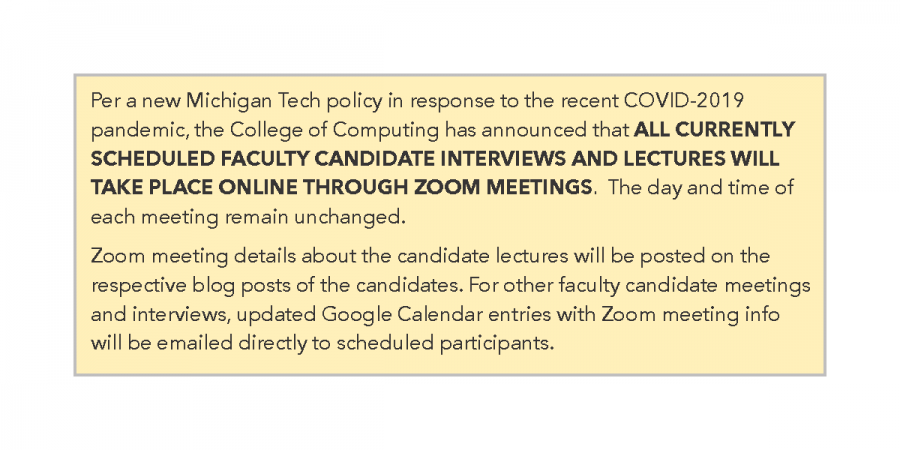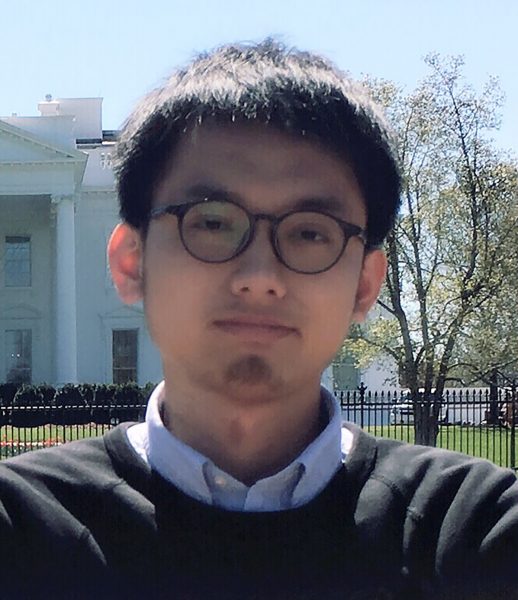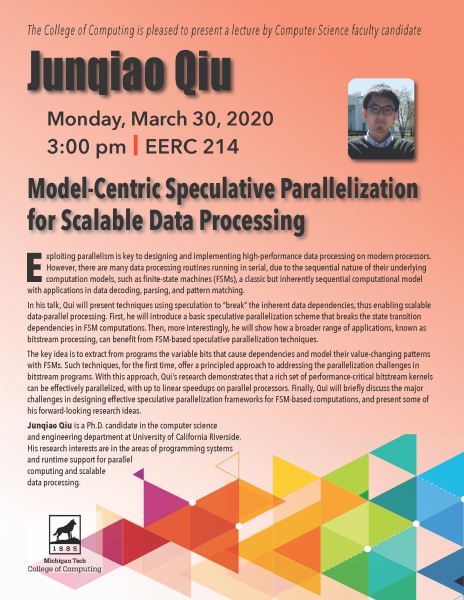

The College of Computing invites the campus community to a lecture by faculty candidate Junqiao Qiu on Monday, March 30, 2020, at 3:00 p.m. The title of Qui’s talk is, “Model-Centric Speculative Parallelization for Scalable Data Processing.”
Link to the Zoom meeting here.
Junqiao Qiu is a Ph.D. candidate in the computer science and engineering department at University of California Riverside, advised by Prof. Zhijia Zhao. He received his bachelor’s degree in electronics and communications engineering from Sun Yat-sen University in 2015. His research interests are in the areas of programming systems and runtime support for parallel computing and scalable data processing.
Exploiting parallelism is key to designing and implementing high-performance data processing on modern processors. However, there are many data processing routines running in serial, due to the sequential nature of their underlying computation models, such as finite-state machines (FSMs), a classic but inherently sequential computational model with applications in data decoding, parsing, and pattern matching.
In his talk, Qui will present techniques using speculation to “break” the inherent data dependencies, thus enabling scalable data-parallel processing. First, he will introduce a basic speculative parallelization scheme that breaks the state transition dependencies in FSM computations. Then, more interestingly, he will show how a broader range of applications, known as bitstream processing, can benefit from FSM-based speculative parallelization techniques.
The key idea is to extract from programs the variable bits that cause dependencies and model their value-changing patterns with FSMs. Such techniques, for the first time, offer a principled approach to addressing the parallelization challenges in bitstream programs. With this approach, Qui’s research demonstrates that a rich set of performance-critical bitstream kernels can be effectively parallelized, with up to linear speedups on parallel processors. Finally, Qui will briefly discuss the major challenges in designing effective speculative parallelization frameworks for FSM-based computations, and present some of his forward-looking research ideas.
Qui is a recipient of the UC-Riverside Dissertation Year Program (DYP) Award and Dean’s Distinguished Fellowship.
